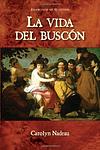Francisco de Quevedo
Francisco de Quevedo was a Spanish writer during the Siglo de Oro, known for his satirical poetry and prose, as well as his literary criticism. He was a prominent figure of the Baroque period in Spanish literature and is particularly famous for his works of conceptismo, a style characterized by concise, witty expressions and complex metaphors. Quevedo's most notable works include 'La vida del Buscón' and a wide range of sonnets and other poems that explore themes such as love, politics, and social criticism.
Books
This list of books are ONLY the books that have been ranked on the lists that are aggregated on this site. This is not a comprehensive list of all books by this author.
-
1. El Buscón
"El Buscón" is a picaresque novel that tells the story of Pablos, the son of a thief and a witch, who aspires to be a gentleman despite his low birth. The narrative follows Pablos's adventures as he navigates through various social classes in 17th-century Spain, from his impoverished childhood to his failed attempts to gain wealth and status through deception and trickery. The novel is a satirical critique of Spanish society, highlighting the corruption and hypocrisy of the nobility and the church.
-
2. The Life & Adventures Of Don Pablos, The Sharper
The book is a picaresque novel that follows the life of Don Pablos, a man who aspires to rise above his lowly birth and become a gentleman. The narrative, rich in satire and social commentary, details Pablos' adventures and misadventures as he engages in various schemes and cons, often with a humorous and ironic tone. Through his journey, Pablos encounters a cast of characters from different strata of society, exposing the vices and follies of the time. His quest for social elevation is fraught with setbacks, reflecting the rigid class structures and moral hypocrisies of the era.
-
3. Visions
"Visions" is a satirical work that delves into the moral and social decay of Spanish society during the Baroque period. Through a series of allegorical and fantastical visions, the author exposes the vices and follies of various social classes and professions. With sharp wit and a critical eye, the text presents a series of dreamlike scenarios where the dead reveal the hypocrisy, corruption, and pretensions of the living. The work is known for its dark humor, rich language, and the use of grotesque imagery to critique the moral shortcomings of humanity, reflecting the author's disillusionment with the world around him.
-
4. Satirical Letter Of Censure
The book in question is a scathing satirical work that employs the epistolary form to critique the moral and social decay of the author's contemporary society. Through the use of a letter, the writer delivers a biting condemnation of the various vices and follies he perceives in the people around him, including hypocrisy, corruption, and intellectual pretension. The text is rich with irony and sharp wit, as the author deftly uses humor to expose the shortcomings of both individuals and the broader cultural milieu, challenging the reader to reflect on the true nature of virtue and the perils of societal complacency.

